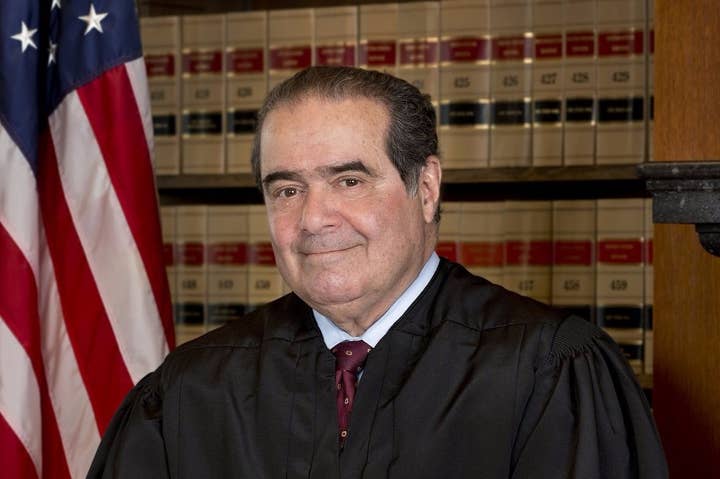ESA mourns Scalia
Industry trade group remarks on passing of Supreme Court Justice who wrote majority opinion in 2011 game legislation case
Supreme Court Justice Antonin Scalia died over the US holiday weekend, and while many looked ahead to the impact his passing might have on the 2016 presidential election, the Entertainment Software Association released a statement focusing on the impact Scalia had on gaming.
"The Entertainment Software Association joins those who salute the service and mourn the loss of Justice Scalia," the group's statement read. "In 2011, when our industry defended the rights of creators and consumers of video games before the US Supreme Court, it was Justice Scalia who authored the historic majority opinion. He declared, with no ambiguity, that video games, like books, movies and other forms of expression, are deserving of First Amendment protections. It was a momentous day for our industry and those who love the entertainment we create and we are indebted to Justice Scalia for so eloquently defending the rights of creators and consumer everywhere."
Painting Scalia as a champion of games as an art form might be a bit much. In the case of Brown v. Entertainment Merchants Association (originally Schwarzenegger v. Entertainment Merchants Association), Scalia's majority opinion focused not on the virtues of games but on the government's strictly limited ability to curtail undesirable forms of speech.
"The most basic principle--that government lacks the power to restrict expression because of its message, ideas, subject matter, or content--is subject to a few limited exceptions for historically unprotected speech, such as obscenity, incitement, and fighting words," Scalia wrote. "But a legislature cannot create new categories of unprotected speech simply by weighing the value of a particular category against its social costs and then punishing it if it fails the test... Reading Dante is unquestionably more cultured and intellectually edifying than playing Mortal Kombat, but these cultural and intellectual differences are not constitutional ones."
That ruling was consistent with his previous decisions. In 1989, Scalia sided with four other Justices in determining that desecrating the American flag is also a constitutionally protected form of free speech.
An appointee of President Ronald Reagan, Scalia sat on the Supreme Court for three decades. Over that time, he cemented a reputation as a conservative judge and a strict constitutionalist, pushing back against the idea that the Constitution is a living document with principles that should adapt to suit the changing culture. His sometimes vehement stances against gun control, gay rights, and abortion rights--to name a few--made him a frequent target of criticism from political opponents.

